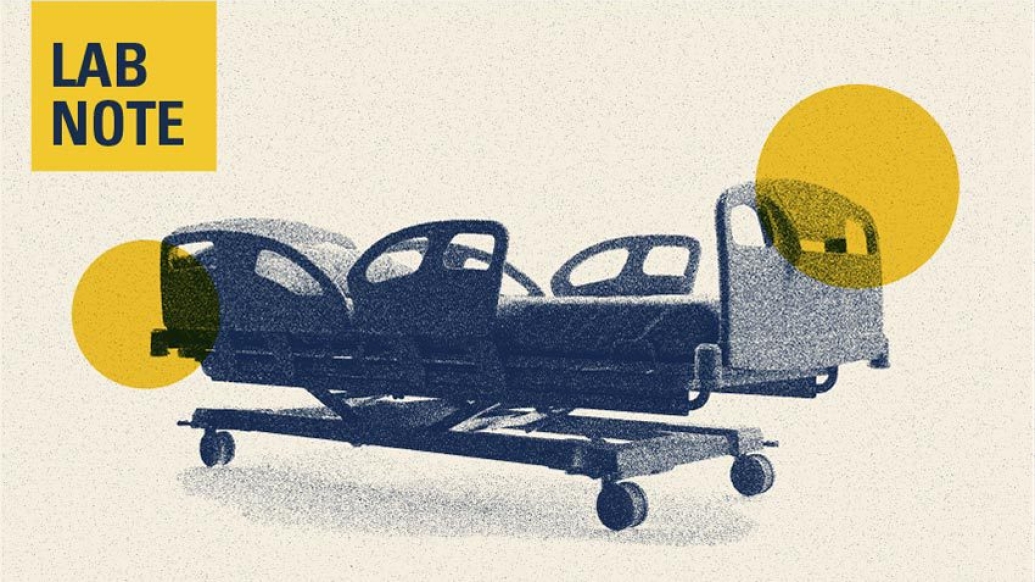The gap in this key outcome for traditional and private-insurer Medicare participants has narrowed in recent years, though differences remain in care during and after hospitalization.
9:41 AM
Author |

Nearly half of Americans with Medicare now get their health insurance coverage through a private company that takes part in the federal government's Medicare Advantage program.
But choosing one of these plans doesn't give as much of an advantage over traditional Medicare as it once did, a new study shows – at least when it comes to heart attack care.
In fact, the lower rate of post-heart attack deaths seen in the Medicare Advantage program in 2009 was no longer evident in 2018, according to a new study published in JAMA by a Harvard University and University of Michigan team.
For the two most common types of heart attack – called STEMI and NSTEMI, with the MI standing for myocardial infarction – the percentage of people dying within 30 days of their heart attack declined for both groups to around 17%. But the 1.5 percentage point survival difference that existed in 2009 narrowed to almost nothing by 2018.
This essentially means that Medicare Advantage plans are getting paid by the federal government for care that ultimately produces the same rate of survival as care not actively managed by an insurance company, the researchers note.
The narrowing of the survival gap also suggests that an effect known as favorable selection – the enrollment in Medicare Advantage of people who are less sick in important ways -- likely explained much of the difference in mortality in the earlier time period.
However, as Medicare Advantage enrollment has grown to encompass almost half of the adults over 65 or with disabilities who are covered by Medicare, the opportunities for selection have diminished.
The team was led by Bruce Landon, M.D., MBA, M.Sc. of Harvard Medical School and John Z. Ayanian, M.D., M.P.P, director of the University of Michigan Institute for Healthcare Policy and Innovation.
The researchers also looked at other aspects of heart attack care and outcomes that relate to in-hospital and post-discharge care.
In most cases, by 2018 there was no statistically significant difference between the two types of Medicare coverage for most aspects of heart attack care, including procedures and operations to reopen clogged blood vessels. Previously, Medicare Advantage participants had higher rates of these types of care.
Some differences persisted. For instance, people covered by Medicare Advantage still had a higher chance of getting cholesterol-lowering drugs and other recommended medications that matched national guidelines. They also had a lower chance of being admitted to an intensive care unit or being readmitted to the hospital within 30 days of being discharged.
But the gaps between the two types of Medicare coverage in these measures also shrank from 2009 to 2018. The authors speculate that this happened in part because hospitals started being penalized financially in 2012 if patients covered by traditional Medicare were readmitted within 30 days of discharge for several conditions, including heart attack.
Medicare Advantage participants in 2018 were still more likely to go directly home from the hospital rather than to a care facility. But traditional Medicare participants are now much more likely to head directly home from the hospital than they once were.
In calculating the results, the researchers took into account the demographic and health differences between the two populations who enrolled in the two types of Medicare. However, they note that Medicare is not allowed to take into account most demographic factors when setting payment rates for Medicare Advantage plans.
In an accompanying editorial, three Brown University researchers – including former U-M School of Public Health faculty member Andy Ryan, Ph.D. – note that it will be important to study variation between specific Medicare Advantage plans, and to focus on the value of care, reducing overpayments and taking into account social and demographic factors.
Citation: "Association of Medicare Advantage vs Traditional Medicare With 30-Day Mortality Among Patients With Heart Attack," JAMA. DOI: 10.1001/jama.2022.20982

Explore a variety of healthcare news & stories by visiting the Health Lab home page for more articles.

Department of Communication at Michigan Medicine
Want top health & research news weekly? Sign up for Health Lab’s newsletters today!





